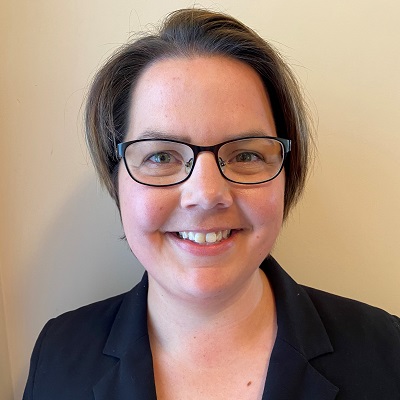Healthcare faces daunting challenges and uncertainty as we look to the future. But we know one thing to be true: passionate advocates across the industry are working each day to improve the delivery of patient care.
When I began my career as a community pharmacist 30 years ago, fax machines were the pinnacle of health technology supporting how we filled prescriptions.
In 2021, Surescripts processed more than 2 billion prescriptions electronically, with the information prescribers and pharmacists needed to care for patients, available at their fingertips.
These innovations changed how we deliver healthcare for the best. But the COVID-19 pandemic uncovered major gaps in pharmacist and prescriber workflows, including time-consuming administrative tasks that we know are contributing to concerning levels of provider burnout and driving costs sky-high.
Community pharmacists trusted to deliver care
In 2023, I predict we will see patients turn to their community pharmacists more and more for their care needs.
The role of the pharmacist is evolving as part of a broader team of providers managing patient care for diseases like diabetes, hypertension or multiple comorbidities.
The Surescripts Network Alliance will continue supporting this broader care team, reducing administrative burdens for care providers and ensuring access to the right clinical patient information at the right time, allowing them to do what they do best – care for their patients.
We talked with a number of industry leaders about their predictions for 2023—here’s what they are saying when it comes to solving healthcare’s top challenges:
Watch this: The future of healthcare is arming prescribers and pharmacists with the right information at the right time to improve patient care.
Here’s what some of our leaders are saying as we consider what is possible in the year ahead:
Burnout will continue to burden health systems, and treating patients effectively will require more vital information

Andrew Mellin, M.D., VP, Chief Medical Information Officer, Surescripts
“Economic uncertainty will worsen for health systems next year with provider burnout, staff shortages, rising inflation, and cyber security threats and attacks driving costs higher-than-ever-before. Health systems may be forced to make hard choices like cutting or limiting services that could adversely impact patient access to care.”
“But technology is available today that reduces inefficiencies and the administrative burdens contributing to provider burnout and extra costs. When providers have access to patient health intelligence at the point of care, they can make better informed decisions and spend less time on phone calls and faxes that take away from patient care.”
“The reality today is that clinical judgment is only part of the equation when caring for a patient. In 2023, understanding how to most effectively treat a patient will require more information contributing to the patient’s overall health, such as social determinants of health.”
“Knowing what a patient can afford, if they understand the treatment plan, if they have access to a pharmacy, among other factors must be evaluated as part of an effective care plan. Surescripts informs these conversations at the point of care by delivering insights into a patient’s prescription costs, insurance coverage and medication adherence, so the prescriber can make better informed decisions and achieve better outcomes.”
Medication price transparency will become clearer

Ken Whittemore Jr, RP.h., M.B.A., VP, Pharmacy & Regulatory Affairs, Surescripts
“Drug and medical care cost transparency will continue to be a top question for patients in 2023. Accordingly, arming prescribers and pharmacists with essential information about medication costs to make better informed decisions at the point of care is a role Surescripts will continue to play.”
“We’ve seen medication affordability and adherence increase when these conversations happen and as prices rise and more specialty drugs come on the market in 2023 – this will become an even more critical aspect of caring for patients.”
Automated specialty prescribing will make it less ‘special’ (and that’s a good thing)

Cecelia Byers, Pharm.D., Clinical Product Advisor for Specialty, Surescripts
“As more specialty medications are available and prescribed more frequently, enhancing interoperability will become even more important in 2023.”
“Specialty medications require much more detailed clinical information than traditional medications and can require numerous phone calls and faxes between prescribers and pharmacists to chase down information and fill out paper forms. Specialty medication automation simplifies this process, giving providers time back so they can focus on what matters most: caring for their patients. Following major enhancements in interoperability across the Surescripts Network Alliance in 2022, specialty prescribing can be automated within a provider’s existing workflow, helping patients access and start their specialty therapies sooner.”
Optimism, interoperability and network integrity will always go hand-in-hand

Melanie Marcus, Chief Marketing Officer, Surescripts
“Hosting Surescripts’ There’s a Better Way podcast in 2022, I was reminded just how passionate our healthcare leaders are about their work and the immense optimism they share for the future of healthcare. Among the many great ideas shared, improving healthcare interoperability stands out. In 2023 Surescripts will continue prioritizing not just interoperability but the key role it plays in maintaining the highest standards of network integrity. Greater interoperability doesn’t just mean more information but delivering the right patient information at the right time and reducing administrative burdens as an intuitive part of a provider’s workflow.”
“Interoperability can be the fix for an unthinkable reality: it still takes weeks for a patient to get started on a specialty medication after a diagnosis. When somebody needs a specialty prescription, they can be very sick and a delay could mean they get worse, need to visit the emergency room, or worse.”
“In 2023, the healthcare industry must focus on reducing the time to specialty therapy – Surescripts has shown it is possible with more automation throughout the medication journey and enhanced interoperability can build on that success.”
Want to stay up on the trends happening at the intersection of healthcare and technology? Subscribe to Intelligence in Action.


 Dean Riggott Photography
Surescripts
Dean Riggott Photography
Surescripts






